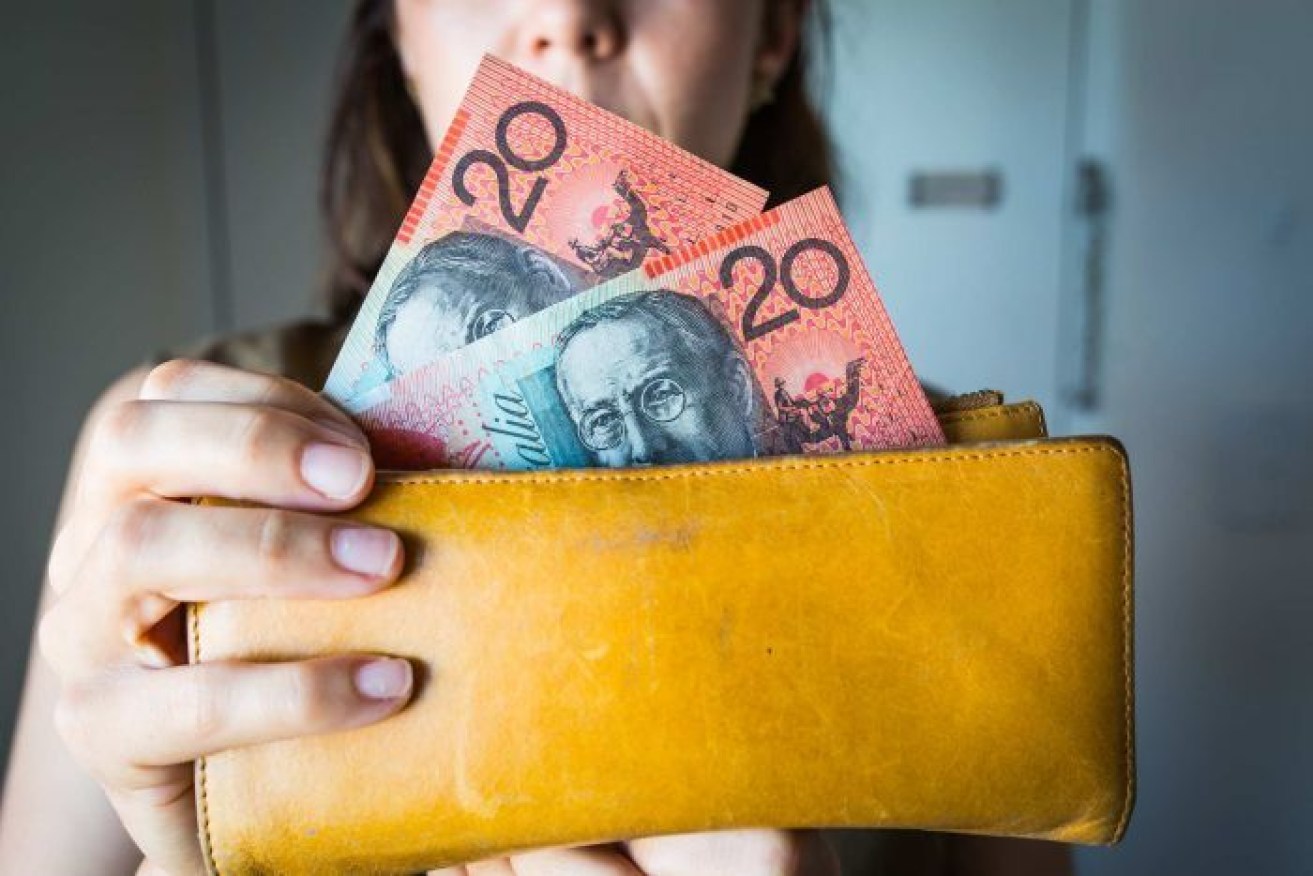The figures that point to the death of the wallet as we know it


Cash transactions fell from 70 per cent to 37 per cent between 2007 and 2016.
Cash could disappear from the mainstream within a decade, with a survey finding almost a quarter of us aren’t bothering to carry any at all.
A survey of more than 1000 people by comparison site Finder has found almost one in four Australians, or 23 per cent, doesn’t carry any cash, meaning in an average week, 4.4 million people are cashless.
Around 21 per cent said they carry just $1 to $10 on average, meaning that almost half of Australia, or 44 per cent, carries $10 or less.
Not surprisingly, the research found those aged 24 and younger (Generation Z), carry the least amount of cash at $37, while Australians aged 59 to 70, carried the most at $70.
The research also found:
- The typical Australian has an average of $59.40 in their wallet, but that amount varies fairly significantly by age and gender
- Men carry almost twice as much cash as women: Men surveyed have an average of $74 in their wallets, compared with $44.90 for women
- 73 per cent of Australians have $50 or less in their wallets and 53 per cent have $20 or less on hand
-
One in six Australians, or 16 per cent, carry about $100 or more
-
Generation Y, aged 24 to 38 are twice as likely to have no cash on them as Baby Boomers, aged 59 plus

Bessie Hassan, money expert with Finder, said the increasing decline of cash brought up a whole new question of whether we even need wallets.
“Society is becoming increasingly cashless in favour of credit, debit and digital payments,” she said.
She also noted that with people increasingly storing their loyalty, membership and public transport cards on their phones, the case for carrying a wallet was fast shrinking.
But people will always need at least some cash on them.
“Whether it’s the Bunnings sausage sizzle or community bake stall, there are some purchases that still require consumers to carry cash,” she said.
A 2016 Reserve Bank of Australia’s report also found only 37 per cent of payments in Australia were being made in cash, almost half of the 70 per cent of cash payments in 2007.
Add to that the decline in ATMs, and Finder’s bold prediction in 2018 that cash could disappear by 2026, may have legs.
According to the RBA, Australians made an average of about 23 ATM withdrawals per person in 2018-19, down from 40 in 2008.
The number and value of ATM withdrawals fell by 4 per cent and 1 per cent respectively, in 2018-19, the total number of ATMs fell by 12.5 per cent (4100 machines) from their peak in 2016, the RBA noted.

The death of cash is greatly exaggerated
Professor Steve Worthington, from Melbourne’s Swinburne University of Technology, said this month’s widespread outage in the Commonwealth Bank network underlined the continued importance of cash in society.
“Imagine you’ve just filled up with petrol and the systems go down, or you’ve parked your car. How do you tap off if the system stops working?” he said.
“That’s why you should always carry some cash, in case all else fails.”
The increasing reliance on, and the reliability of, electric payments systems were a concern for the RBA, Professor Worthington said.
This concern was also being played out in Sweden, where around 85 per cent of all transactions are digital, and where an estimated 4000 citizens have a payment chip surgically inserted in their hands.
“Sweden’s central bank, for example, has insisted banks hold cash and that ATMs be widely available,” he said.
And Australia faced the same issue.
“You have people living in rural communities or indigenous Australians who can find it hard to find an ATM, so there are fears of exclusion there. There are groups of people who still desperately need cash.”
He cited the elderly, disabled, recent migrants and “the unbanked” as examples of people who can find it hard to access methods of electric payment, such as credit or debit cards.
Professor Worthington said cash still had three predominant benefits.
- Resilience: When systems fall over or cyber terrorism strikes, cash is a constant
- Privacy: During the Hong Kong riots, protesters have deferred to cash to buy tickets on public transport, allowing them to mask their movements and transactions
- The AAA: With few exceptions, accepted everywhere; it’s anonymous and so doesn’t leave an audit trail; and it’s authentic, making for durable and instantaneous settlement
Tweet from @maryhui








